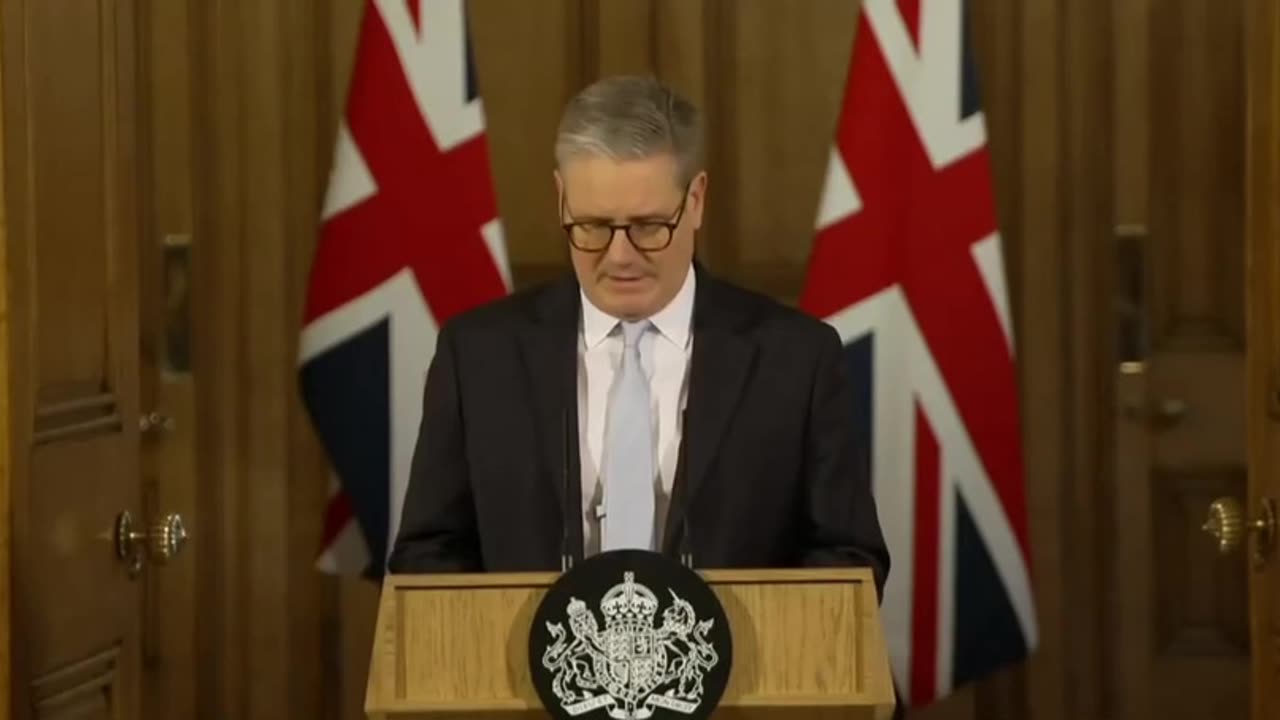Premium Only Content

UK Prime Minister Keir Starmer Admits to “Open Borders Experiment” in Western Nations
In a revelation stirring intense debate across the United Kingdom and beyond, Prime Minister Keir Starmer has acknowledged that Western leaders have been engaging in what he referred to as an “open borders experiment.” This admission has sparked a wave of reactions from political commentators, citizens, and international observers.
Starmer’s Remarks and Context
Speaking on immigration policies and the state of labor markets, Starmer described a deliberate approach by Western governments to integrate open-border policies into their economic and social frameworks. Critics argue that these policies have been implemented with little to no public consultation or support, while proponents claim they were necessary to address workforce shortages and foster global collaboration.
“Brexit was used for this purpose,” Starmer reportedly stated, “to turn Britain into a one-nation experiment in open borders. Global Britain, remember that slogan? That is what they meant—a policy with no support, of which they then pretended wasn’t happening.”
Implications for the UK
The Prime Minister’s comments shed light on a post-Brexit reality where the UK, initially sold on tighter border controls and greater sovereignty, appears to have embraced a broader immigration agenda. This “open borders experiment” has seen increased migration flows, particularly in industries grappling with labor shortages such as healthcare, agriculture, and hospitality.
However, the acknowledgment has fueled criticism from both sides of the political spectrum:
• Conservatives argue that the Labour government is undermining national identity and overburdening public services.
• Progressives question whether the policy was truly designed for humanitarian purposes or as a tool for economic exploitation.
A Global Strategy?
Starmer’s comments also touch on a broader, coordinated effort among Western nations. Analysts suggest this reflects a shift in global leadership strategies, with open-border policies being tested to address aging populations and the economic demands of globalization. But the experiment has faced backlash, with many arguing it fosters division and social strain rather than unity.
Public Reaction
The UK public’s response has been deeply polarized. Some view the policy as a betrayal of Brexit’s promises, while others see it as a pragmatic response to global challenges. Social media platforms have been flooded with heated discussions, with hashtags like #OpenBordersExperiment and #StarmerAdmits trending across the country.
Local activists and organizations are calling for greater transparency in government decision-making processes. “The people were promised control of their borders,” said one commentator. “What we got instead was an experiment we didn’t sign up for.”
What’s Next?
As debates over the open-borders approach intensify, questions loom about the long-term effects on national sovereignty, cultural cohesion, and economic stability. With elections on the horizon, Starmer’s admission may significantly impact Labour’s standing among voters.
Political observers suggest that this acknowledgment may force other Western leaders to come forward about similar strategies, potentially sparking a reevaluation of global migration policies.
Conclusion
Starmer’s revelation of an “open borders experiment” underscores the complexities of modern governance in an interconnected world. While the policy may address some global challenges, it raises fundamental questions about democracy, national identity, and the relationship between governments and their citizens. For many, this admission is not just a reflection on the UK but a lens through which to examine broader global dynamics.
-
 2:48
2:48
FragmentsOfTruth
3 days agoTHE INVISIBLE FRAME: A CONSPIRACY OF LIGHT
273 -
 12:24
12:24
The Shannon Joy Show
14 hours ago🔥From Flock Cameras to Palantir: America’s Expanding Digital Cage🔥
4.52K2 -
 LIVE
LIVE
BEK TV
23 hours agoTrent Loos in the Morning - 8/27/2025
229 watching -
 LIVE
LIVE
The Bubba Army
22 hours agoTaylor Swift & Travis Kelce ENGAGED! - Bubba the Love Sponge® Show | 8/27/25
1,866 watching -
 40:14
40:14
Uncommon Sense In Current Times
17 hours ago $1.70 earnedThe Dating Crisis in America | J.P. De Gance on the Church’s Role in Restoring Family & Faith
36.2K3 -
 12:35
12:35
Red Pill MMA
19 hours agoNow We Know The Truth.. Hero Who Stopped Raja Jackson Speaks Out
10.4K7 -
 41:04
41:04
Coin Stories with Natalie Brunell
1 day agoCooking, Culture & Crypto: Norma Chu’s Food Empire Turns Bitcoin Treasury
11.6K -
 8:03
8:03
MattMorseTV
18 hours ago $8.87 earnedThings in the UK just got INSANE...
92K138 -
 3:02:10
3:02:10
daniellesmithab
12 hours agoAlberta Next: Fort McMurray Town Hall
20.6K1 -
 2:11:17
2:11:17
Side Scrollers Podcast
21 hours agoINSANE Illegal Migrant Propaganda Xbox Game + Paypal REFUSES To Pay Dev + More | Side Scrollers
68.7K4